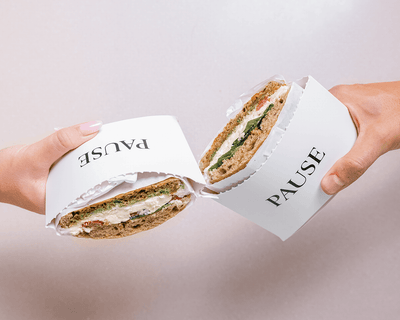The Evolution of Artisanal Cheese Making: Reviving Traditional Techniques in Modern Cuisine
Artisanal cheese-making leaves us questioning the origins which have charmed cheese enthusiasts for centuries, ranging from tale-old techniques and authenticity. Historically, cheesemaking dates back to around 8000 BCE in the Fertile Crescent, where early humans first domesticated livestock. These cheesemakers discovered the process of turning milk into cheese using basic methods and tools available at the time. Today, this ancient craft is celebrated for its rich heritage and diversity.
Artisanal cheese makers use time-honoured practices to produce cheeses with unique flavours and textures, reflecting cultural & environmental influence. In this blog, we aim to shed light on the traditional techniques & craftsmanship which have teleported beloved cheese makers to the dairy hub in the modern era. Let’s explore.
Rediscovering Traditional Cheese-Making Methods
Traditional cheesemaking techniques, cherished for historical significance and unique flavour & texture methods, continue to play a vital role in contemporary culinary practices.
Using raw milk allows for the development of native bacterial cultures and fungi, which are essential for creating unique flavours in cheese. This practice is still prevalent among artisanal cheese makers who value the complexity it adds to their products.
Cheese made in copper vats benefits from the metal's conductivity, which helps control the temperature during the cheesemaking process. This method, used for centuries, is still employed in regions like the Swiss Alps, known for their traditional Alpine cheeses like Gruyere.
Ageing cheese on wood boards imparts distinct characteristics due to the interaction between the wood and the cheese. This traditional technique is particularly important for cheeses like Parmigiano and other French varieties, developing their unique rinds and flavours throughout.
Ageing cheese in underground caves creates a natural environment with consistent temperature and humidity, ideal for developing deep flavours and complex textures. This ancient method is still used today for cheeses such as Roquefort, which matures in the limestone caves of Roquefort-sur-Soulzon.
Using clay pots to heat fermented milk and produce acid-heat coagulated cheeses, like Ricotta, dates back to ancient times. This simple yet effective technique is still widely used, particularly in Mediterranean and Middle Eastern cheesemaking traditions.
Innovations in Artisanal Cheese Production
Modern advancements in artisanal cheese-making are revolutionising the industry with sustainable practices and innovative ageing methods. These new approaches enhance the quality of cheese and promote environmental stewardship.
Artisan cheesemakers are prioritising the sustainability of their farms by fine-tuning animal diets to reduce methane emissions and improve overall health. This practice helps decrease the environmental footprint of dairy farming.
To preserve vital resources, cheesemakers are implementing water-saving technologies and sustainable land management practices. This ensures that cheese production is not only eco-friendly but also efficient.
Advancements in biotechnology have enabled the creation of lactose-free cheeses that cater to those with lactose intolerance. These innovations expand the market and make artisanal cheese accessible to a broader audience.
Modernised equipment, such as pasteurisation machines and serialisation equipment, have streamlined industrial-scale cheese production. This has allowed for consistent quality and improved safety standards in artisanal cheese.
Using naturally temperature-controlled caves for ageing cheese is an eco-friendly method that enhances flavour and texture. This traditional technique is being adapted with modern insights to produce superior cheeses.
Innovative packing and skin packaging machines are being utilised to extend the shelf life of cheese while reducing packaging waste. These advancements ensure that the cheese reaches consumers in optimal condition with minimal environmental impact.
Precision Fermentation
Precision fermentation is a groundbreaking process that uses microorganisms to produce dairy proteins without the need for animals. This method is more eco-friendly and addresses the taste and texture issues commonly found in plant-based cheese alternatives. Government entities are even collaborating with companies to mainstream this technology.
By integrating these innovative and sustainable practices, the artisanal cheese industry is evolving to meet contemporary demands while maintaining its rich heritage and commitment to quality.
The Future of Artisanal Cheese Making
While we pay due tribute to mechanised and sustainable cheese production methods, traditional cheese-making still has a special place in the parlours of cheese connoisseurs. Despite the rise of factory-produced cheese, artisan cheesemakers keep the craft alive. Fusion cheeses, like kimchi cheddar and curry gouda, and new beverage pairings, including craft beers and non-alcoholic drinks, are gaining popularity.
With so much cheese flair, it’s hard for the cheese industry to savour the milestones achieved during mid-production. Thankfully, we haven’t said goodbye to conventions and active participation towards the global cheese season. Cheese producers mark their flair by hosting personalised experiences such as cheese flights, subscription boxes and workshops where buyers commend the art of cheese-making for ample generations.
Artisanal cheeses have paved the way for outstanding culinary & manufacturing processes which combine both tradition and modernity. This due testament has inspired cheese makers to uphold the value of artisan cheeses as the global fest shifts towards innovative and sustainable practices. While preserving the taste and texture of artisan cheeses, the delicate balance between innovation and tradition has enabled a variety of unique combinations in the world of cheese.









